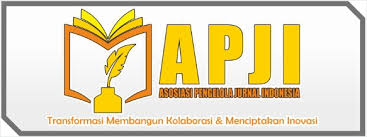Culinary Business Mentoring for Housewives: Turning Passion into Profit
DOI:
https://doi.org/10.70610/iare.v2i2.432Keywords:
Culinary Business, Digital Literacy, Entrepreneurship., MentoringAbstract
This community service initiative aimed to empower homemakers by providing culinary business mentoring, helping them transform their passion for cooking into profitable home-based enterprises. With the increasing need for economic independence and skill development among homemakers, this program sought to address gaps in entrepreneurial knowledge, digital marketing, and business strategies. Using a Participatory Rural Appraisal (PRA) approach, the mentoring model included hands-on workshops, one-on-one guidance, and peer collaboration over four months. The results showed significant improvements in participants' business knowledge, digital literacy, and income, with many reporting a 40-60% increase in monthly earnings. Participants also experienced a shift in mindset, viewing themselves as entrepreneurs rather than just homemakers. While the program was successful, limitations such as time constraints and access to digital tools were noted. Future programs should incorporate flexible learning schedules and further digital infrastructure support. This initiative contributes to the growing recognition of homemakers as key economic actors, offering a scalable model for empowering women in local communities.
References
H. A. Al-Ababneh, “Researching Global Digital E-Marketing Trends,” Eastern-European J. Enterp. Technol., vol. 1, no. 13–115, pp. 26–38, 2022, doi: 10.15587/1729-4061.2022.252276.
T. S. Handayani, M. Iqbal, F. Marisya, M. Marsinah, and D. Despita, “Culinary Tourism Development in Palembang City: A Case Study Bebek Gendut Restaurant as An Economic Driver in The Traditional Halal Food,” Ekon. Sharia J. Pemikir. dan Pengemb. Ekon. Syariah, vol. 8, no. 2, pp. 191–204, 2023.
L. Nugroho and N. Hidayah, “E-commerce to improve homemaker productivity (women entrepreneur empowerment at Meruya Utara, Kembangan district, West Jakarta, Indonesia),” Amalee Indones. J. Community Res. Engagem., vol. 1, no. 01, pp. 13–24, 2020.
D. Atkin, E. Colson-Sihra, and M. Shayo, “How do we choose our identity? a revealed preference approach using food consumption,” J. Polit. Econ., vol. 129, no. 4, pp. 1193–1251, 2021.
Roberto Crotti & Tiffany Misrahi, “The Travel and Tourism Competitiveness Report,” Geneva, 2017.
J. V. Litamahuputty, A. Siahaya, and V. Cornelis, “The Role of Financial Literacy as A Moderating Variable in the Impact of Fintech Payments on Consumer Behavior,” JHSS (JOURNAL Humanit. Soc. Stud., vol. 8, no. 1, pp. 184–188, 2024.
R. Rusmulyani, “Technical Vocational Education and Training (TVET) Innovation Dengan Model Pelatihan Berbasis Kompetensi Dalam Pengembangan Soft-Skill Sumber Daya Manusia,” J. Inov. Penelit., vol. 1, no. 8, pp. 1495–1506, 2021.
S. Mukherjee, “Challenges to Indian micro small scale and medium enterprises in the era of globalization,” J. Glob. Entrep. Res., vol. 8, pp. 1–19, 2018.
E. Altena et al., “Dealing with sleep problems during home confinement due to the COVID‐19 outbreak: Practical recommendations from a task force of the European CBT‐I Academy,” J. Sleep Res., vol. 29, no. 4, p. e13052, 2020.
U. W. Village et al., “Taking stories: The ethics of cross-cultural community conservation research in Samburu, Kenya,” Gateways Int. J. Community Res. Engagem., vol. 13, no. 1, pp. 1–18, 2020.
T. Muliati, N. A., and W. O. Piliana, “Social Economic Condition Of Fishermen Community In Tanjung Tiram Village, North Moramo District, South Konawe Regency,” J. Sos. Ekon. FPIK UHO, vol. 3, no. 3, pp. 216–228, 2018.
T. K. E. Akinwamide and F. M. Oguntade, “Facilitating Independent and Collective Writing Skill Proficiency: The Think-Pair-Share Strategy Involvement,” Eur. J. Linguist., vol. 2, no. 1, 2023, doi: 10.47941/ejl.1196.
V. Ratten and P. Usmanij, “Entrepreneurship education: Time for a change in research direction?,” Int. J. Manag. Educ., vol. 19, no. 1, p. 100367, 2021.
M. F. van Assen, “Exploring the impact of higher management’s leadership styles on Lean management,” Total Qual. Manag. Bus. Excell., vol. 29, no. 11, pp. 1312–1341, 2018, doi: 10.1080/14783363.2016.1254543.
J. O’Connor, S. Ludgate, Q.-V. Le, H. T. Le, and P. D. P. Huynh, “Lessons from the pandemic: Teacher educators’ use of digital technologies and pedagogies in Vietnam before, during and after the Covid-19 lockdown,” Int. J. Educ. Dev., vol. 103, no. January, pp. 1–10, 2023, doi: 10.1016/j.ijedudev.2023.102942.
Y. Hasanah, “Eco enzyme and its benefits for organic rice production and disinfectant,” J. Saintech Transf., vol. 3, no. 2, pp. 119–128, 2021, doi: 10.32734/jst.v3i2.4519.
F. Yunda Sari, Y. Sapta Pranoto, R. Purwasih, J. Agribisnis, and F. Pertanian Perikanan dan Biologi, “Analysis of Salted Fish (Case Study of Rebo Village, Sungailiat District, Bangka District) Analisis Usaha Ikan Asin (Studi Kasus Desa Rebo Kecamatan Sungailiat Kabupaten Bangka),” J. Integr. Agribus., vol. 2, no. 1, pp. 20–36, 2020, doi: 10.33019/jia.v2i1.xxxx.
A. P. Nugroho, A. Asfahani, F. Sugiarto, H. S. Sufyati, and A. Setiono, “Community Assistance in Utilizing Sharia-Based Digital Banking,” Amalee Indones. J. Community Res. Engagem., vol. 4, no. 2, pp. 519–530, 2023.
E. Rubio-Mozos, F. E. García-Muiña, and L. Fuentes-Moraleda, “Rethinking 21st-century businesses: An approach to fourth sector SMEs in their transition to a sustainable model committed to SDGs,” Sustainability, vol. 11, no. 20, p. 5569, 2019.
E. Desembrianita, A. Zahruddin, and Z. Arifin, “Analysis of Public Policy as Catalyst for Entrepreneurship Growth and Innovation,” West Sci. J. Econ. Entrep., vol. 1, no. 03, pp. 181–187, 2023.
M. Martiskainen, “The role of community leadership in the development of grassroots innovations,” Environ. Innov. Soc. Transitions, vol. 22, pp. 78–89, 2017.
L. Salamé et al., “Drivers, pressures and stressors: The societal framework of water resources management,” in Handbook of Water Resources Management: Discourses, Concepts and Examples, Springer, 2021, pp. 329–364.
S. I. Novitasari, T. L. Natalia, T. Pebrianto, and Y. E. Gresella, “Digital Literacy Inherency within Narratives Subject at SMP Kristen Palangka Raya,” J. Sci. Res. Educ. Technol., vol. 2, no. 2, pp. 648–661, 2023.
G. Falloon, “From digital literacy to digital competence: the teacher digital competency (TDC) framework,” Educ. Technol. Res. Dev., vol. 68, pp. 2449–2472, 2020.
D. Pratama, N. Nurwani, and Y. S. J. Nasution, “The Effect of Understanding of Financial Literacy and Ease of Digital Payment on the Continuity of Msmes in the Digitalization Era,” Indones. Interdiscip. J. Sharia Econ., vol. 6, no. 2, pp. 618–638, 2023.
Downloads
Published
How to Cite
Issue
Section
License
Copyright (c) 2024 Khurshed Iqbal

This work is licensed under a Creative Commons Attribution-NonCommercial-ShareAlike 4.0 International License.
License: CC BY-SA 4.0 (Creative Commons Attribution-ShareAlike 4.0 International License)






 MoU
MoU 


